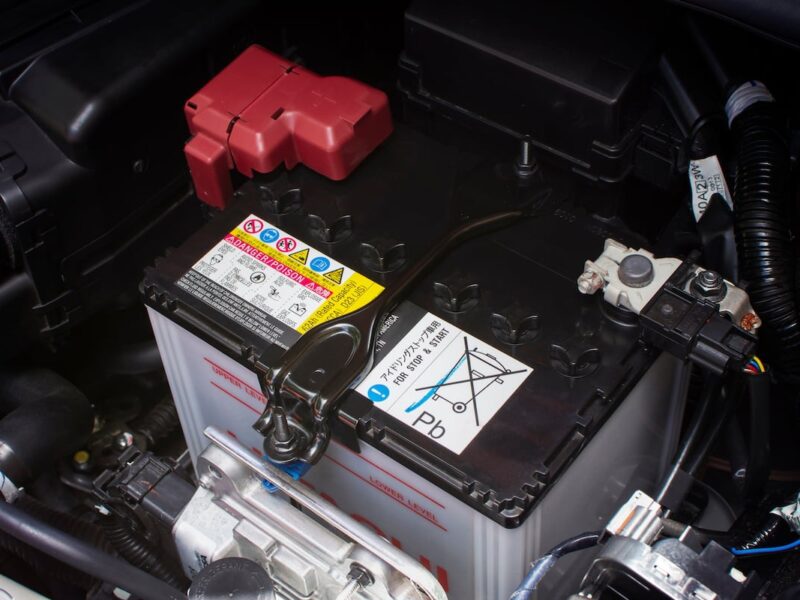Your Vehicle Battery: The Powerhouse & Maintenance Protocols
The vehicle battery is the unsung hero of your car’s electrical system, quietly powering everything from the ignition system to the lights and radio. It’s a complex piece of technology, typically consisting of lead-acid cells or newer lithium-ion variants, that converts chemical energy into electrical power.
This conversion is crucial for starting your engine and ensuring all electronic systems function smoothly. Without a properly working battery, even the most advanced vehicle features are rendered useless, highlighting its importance in daily driving and overall vehicle performance.
Maintaining your vehicle battery is essential to avoid unexpected failures. Regular checks for signs of wear and tear, such as slow engine cranks or dimming headlights, can prevent inconvenient breakdowns. Additionally, ensuring proper battery care, such as keeping it clean and secure, can extend its lifespan. As battery technology advances, understanding these components and how they work will help you make informed decisions about maintenance and replacement, ensuring your vehicle remains reliable and efficient for years to come.
At the heart of every vehicle battery are lead-acid cells. Each cell contains plates made of lead and lead dioxide, immersed in a sulfuric acid solution. When the battery is charged, a chemical reaction occurs between these materials, generating electrical energy. This energy is then used to start the engine and power various electrical systems.
Once your vehicle is running, the alternator takes over the job of providing electrical power and recharging the battery. Essentially, the vehicle battery acts as a backup power source, ensuring your vehicle’s electronics remain functional even when the engine is off.
Types of Vehicle Batteries
Understanding the different types of vehicle batteries can help you make informed decisions about maintenance and replacement. Here are the most common types:
1. Conventional Lead-Acid Batteries
These are the most widely used vehicle batteries. They are reliable and cost-effective, consisting of lead plates and sulfuric acid. However, they require regular maintenance and are prone to leaking if not handled properly.
2. Absorbent Glass Mat (AGM) Batteries
AGM batteries are a type of lead-acid battery with an absorbent glass mat separator that holds the electrolyte. This design makes them more resistant to vibration and spills, providing enhanced durability and longer life compared to conventional lead-acid batteries.
3. Gel Cell Batteries
Gel cell batteries use a gel-like electrolyte instead of liquid acid. They offer excellent performance in extreme temperatures and are spill-proof. Gel cell batteries are often used in high-end vehicles and specialized applications.
4. Lithium-Ion Batteries
Lithium-ion batteries are a newer technology offering superior performance and lighter weight. They are more expensive but provide faster charging and a longer lifespan. While not yet as common in vehicles as lead-acid batteries, they are gaining popularity in high-performance and electric vehicles.
Signs of a Failing Vehicle Battery
A vehicle battery doesn’t fail without warning. Here are some signs that it might be time for a replacement:
1. Slow Engine Crank
If your vehicle takes longer to start or the engine cranks slowly, it could indicate a weak battery.
2. Electrical Issues
Dim headlights, flickering dashboard lights or malfunctioning electronics can signal that your vehicle battery isn’t supplying enough power.
3. Warning Light
Most modern vehicles have a battery warning light on the dashboard. If this light comes on, it’s time to check the battery.
4. Swollen Battery Case
Extreme temperatures or overcharging can cause the battery case to swell. This physical deformation is a clear sign of battery trouble.
5. Old Age
Vehicle batteries typically last between 3 to 5 years. If your battery is approaching this age, it might be wise to have it tested or replaced.
How to Maintain Your Vehicle Battery
Proper maintenance can extend the life of your vehicle battery and ensure it performs reliably. Here are some tips:
1. Regular Inspections
Check your vehicle battery regularly for signs of corrosion or damage. Clean any corrosion from the terminals with a mixture of baking soda and water.
2. Keep the Battery Secure
Ensure the battery is securely fastened. Vibration from a loose battery can damage internal components and reduce lifespan.
3. Avoid Short Trips
Frequent short trips don’t allow the battery to fully charge. Try to take longer drives to keep the battery in good condition.
4. Test the Battery
Have your battery tested periodically, especially before extreme weather conditions. Many auto parts stores offer free battery testing.
5. Check the Charging System
A malfunctioning alternator can lead to battery problems. Ensure your vehicle’s charging system is working properly to avoid battery issues.
Replacing Your Vehicle Battery
When it’s time to replace your vehicle battery, consider the following:
1. Choose the Right Battery
Ensure the new battery matches the specifications of your old one. Refer to your vehicle’s manual for the correct size and type.
2. Professional Installation
While replacing a vehicle battery is often a straightforward task, it’s wise to have a professional handle the installation to ensure it’s done correctly and safely.
3. Dispose of the Old Battery Properly
Vehicle batteries contain hazardous materials. Always dispose of your old battery at a recycling center or auto parts store that offers battery recycling services.
The Future of Vehicle Batteries
The future of vehicle batteries is exciting, with advancements in technology leading to more efficient and durable options. Lithium-ion batteries are becoming increasingly common in electric and hybrid vehicles due to their high energy density and longevity. Research is also ongoing into solid-state batteries, which promise even greater performance and safety.
The vehicle battery is more than just a component; it’s a vital part of your vehicle’s ecosystem. By understanding its role, recognizing the signs of failure and following proper maintenance practices, you can ensure that your vehicle battery remains reliable and performs optimally. Whether you’re dealing with a conventional lead-acid battery or considering a switch to a cutting-edge lithium-ion option, keeping your vehicle battery in top shape is key to a smooth driving experience.
Frequently Asked Questions
What is a vehicle battery and why is it important?
A vehicle battery is a rechargeable power source that supplies electrical energy to start the engine and power various electrical components in your vehicle. It’s crucial for ensuring that the vehicle starts reliably and that all electronic systems, like lights and infotainment, function properly.
How long does a vehicle battery typically last?
On average, a vehicle battery lasts between 3 to 5 years. However, its lifespan can vary based on factors such as driving habits, climate and maintenance.
What are the common signs that a vehicle battery is failing?
Common signs include slow engine cranking, dim or flickering headlights, a battery warning light on the dashboard, a swollen battery case and general electrical issues.
How can I maintain my vehicle battery to extend its life?
Regular maintenance includes checking for corrosion, ensuring the battery is securely fastened, avoiding frequent short trips, testing the battery periodically and having the charging system checked.
What should I do if my vehicle battery dies?
If your vehicle battery dies, you can try jump-starting it using jumper cables and another vehicle. If that doesn’t work or if the battery is old, it’s best to replace it with a new one.
How do I choose the right replacement battery for my vehicle?
Ensure the replacement battery matches the specifications of your old battery. Refer to your vehicle’s manual or consult with an auto parts professional for the correct size and type.
Can extreme temperatures affect my vehicle battery?
Yes, extreme temperatures can impact battery performance. Cold weather can reduce battery capacity, while excessive heat can cause the battery to degrade faster.
How often should I have my vehicle battery tested?
It’s a good idea to have your vehicle battery tested at least once a year, especially before extreme weather conditions. Many auto parts stores offer free battery testing.
Is it necessary to replace a vehicle battery professionally or can I do it myself?
While replacing a vehicle battery is often a straightforward task, it’s recommended to have a professional handle it to ensure proper installation and safety. They can also dispose of the old battery correctly.
What should I do with my old vehicle battery?
Always dispose of your old vehicle battery at a recycling center or an auto parts store that offers battery recycling services. Vehicle batteries contain hazardous materials and should be recycled properly to prevent environmental harm.





